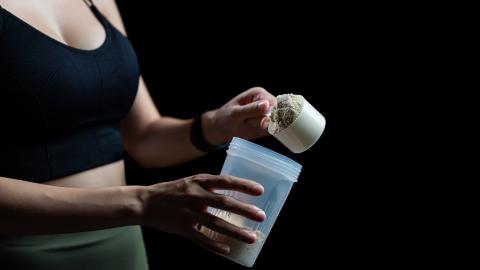Thousands of young people and adults consume creatine on a daily basis to improve their sports performance. Being one of the most used supplements in the world, creatine is still a mystery to many people who enter the world of sports.
What is creatine for? Let’s go by parts. Creatine is a natural substance that is converted to creatine phosphate in the body. Creatine phosphate helps make a substance called adenosine triphosphate (ATP).
ATP is essential for physical activity, as it provides the energy for muscle contractions.
The body makes some of the creatine it uses, but we also get creatine from high-protein foods like meat or fish. Hence, one of the most used supplements in the world of competition is creatine monohydrate.
How is creatine used? As early as the 1970s, scientists discovered that taking creatine in supplement form could improve physical performance. In the 1990s, athletes began to take notice and creatine became a very popular sports supplement.
Creatine is believed to improve strength, increase muscle mass, and help muscles recover more quickly during exercise. This muscle boost can help athletes build speed and energy, especially during short bursts of high-intensity activity.
However, scientific research on creatine has been conflicting. Although some studies have found that it helps improve performance during short periods of athletic activity, there is no evidence that creatine helps in endurance sports.
Research also shows that noo all muscles respond to creatine; some people who use it see no benefitas is usual in the use of supplements.
Despite the popularity of creatine among young people, very little research has been done on children under the age of 18. Of those studies, a few have suggested a positive effect, but the overall evidence is inconclusive.
In a study, teenage swimmers performed better after taking creatine; in another study, he helped high school soccer players sprint, dribble, and jump more effectively.
Just because creatine is natural doesn’t necessarily mean it’s safe. The Food and Drug Administration (FDA) considers it a safe supplement as long as the recommended daily amount is not exceeded (depends on the weight of the subject).
Although most healthy people can safely take it, creatine can, in rare cases, have side effects, especially when used in excess. Side effects can be: fever, diarrhea, vomiting, kidney problems, anxiety, and weight gain.
George is Digismak’s reported cum editor with 13 years of experience in Journalism
